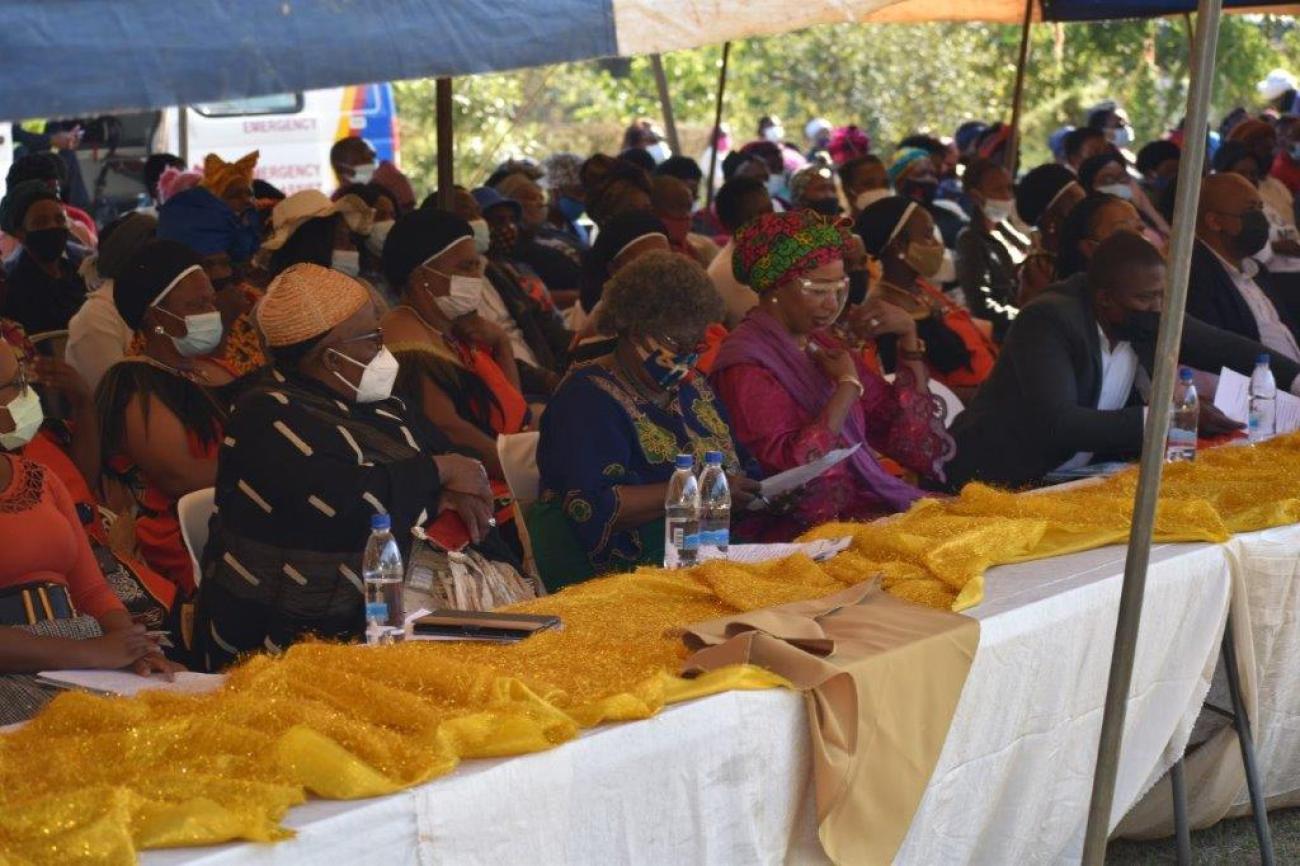On the 23rd June 2021, the United Nations Resident Coordinator in the Kingdom of Eswatini, Ms. Nathalie Ndongo-Seh joined over 200 women at the Millennium Park in Manzini to commemorate the International Widows Day.
The celebration, organized by Umhluma Women & Youth Foundation with support from the UN family, was a culmination of regional dialogues which were used to document challenges faced by widows across the country.
The national celebration was attended by Manzini Regional Administrator, Prince Chief Gija, Member of Parliament and Chairperson of the Parliamentary Women Committee, Hon. Lorraine Nxumalo, Acting Director of the Gender Unit in the Deputy Prime Minister’s Office, Ms. Nomzamo Dlamini and Umhluma Foundation Patron, Ms. Stella Lukhele.
International Widows’ Day is an opportunity to raise awareness on the hardships that widows face when their husbands die. It seeks to highlight the problems of widows and encourage people to help widows who may be struggling with the challenges of life. I wish, from the onset, to thank the organisers of this commemoration, for their resilience and determination to bring us together and sensitize us on those specific challenges.
This year’s theme was “Invisible Women, Invisible Problems”. The Day was to raise awareness on the challenges faced by widows and to mobilize support to address them. Widows were given an opportunity to share their stories of the various challenges they face, including food security, violation of rights, loss of property and abuse by in-laws.
In her remarks, the UN Resident Coordinator noted that the devastating impacts of COVID-have seen a significant increase in the number of widows and widowers and exacerbated their vulnerabilities. “It is now clearer to all that policymakers need to take specific measures to address issues that affect widows, including health access, pension access, food insecurity, sustainability or grants, land issues and so on to ensure that widows do not fall prey to poverty, hunger and health issues,” she said.
She added that women who have become widows as a result of COVID-19 should be identified. “The significance of International Widows Day and the awareness that it brings will definitely increase in the post-COVID-19 era as there are many issues facing widows,” she stated. “Working widows, for example, either do not earn much or have been rendered jobless by the pandemic. They bear the bulk of the problems previously shared with their deceased husbands, as they become the main bread winner, are fully responsible of their children upbringing, are confronted to legal/administrative/ and at times community issues that were exclusively handled by their departed husbands.”
Ms. Ndongo-Seh noted that around the world, including in Eswatini, widows are deprived of their rights and privileges. “In Eswatini, I am advised, widows are sometimes bound to observe mourning rituals which compel them to remain in seclusion for a long period of time, avoiding social gatherings including workplaces,” she stated. “Some widows are forced to remarry to a brother-in-law and are discouraged or even banned from re-marrying outside the husband’s family.”
According to the World Economic Forum, there are an estimated 258,481,056 widows globally with 584,574,358 children. The number of widows grew by 9 percent since 2010, partly because of conflicts and disease. Statistics for the number of widows after COVID-19 are not yet available.
View photos









